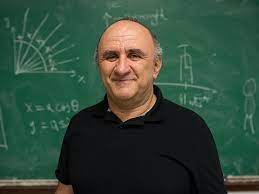To Gregory Rodin, intuition is everything. The newly retired Professor Emeritus of Aerospace Engineering & Engineering Mechanics at the University of Texas at Austin and Core Faculty at the Oden Institute for Computational Engineering and Sciences is an expert in the field of computational micromechanics. Like any computational scientist, Rodin capitalizes on computational power to simulate and study the infinitesimal units that combine to form heterogeneous materials – a process that allows for a deeper understanding of those materials - which range from atomistic to geological in scale. But he also relies heavily on his own intuition.
Because without it, he says, you don't know the next step. “There are some people whose intuition is so amazing that they don't need any math. They simply have, as a good old colleague of mine used to say, a direct line to God,” said Rodin admiringly.
What Rodin does fits nicely with his personality. It's some combination of soft and hard science, and he has always enjoyed that balance. “I certainly found that in my field you could, on one hand, rely on some rigor and, on the other hand, on a lot of intuition.”
Rodin believes strongly in the power of the iterative process that has laced his successful career as a researcher and professor: the acquisition and application of self-knowledge.
He is acutely aware that everyone’s wiring is different, so it’s very important for each of us to figure ours out and how to exploit it to the max. Life, therefore is a constant learning process.
